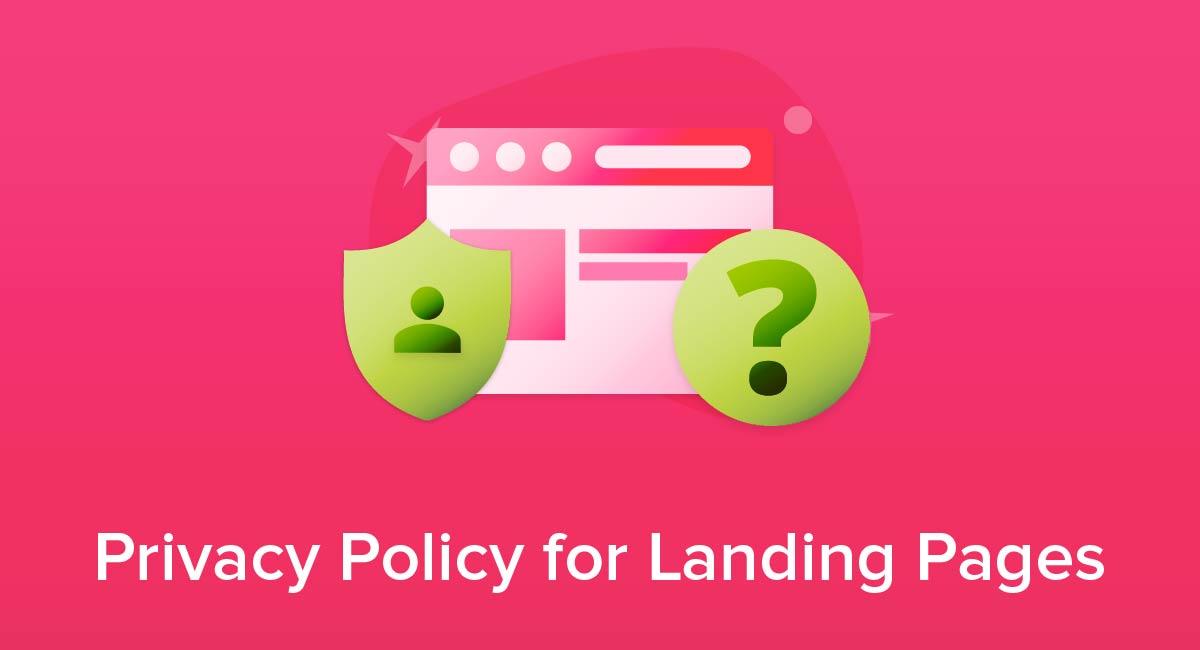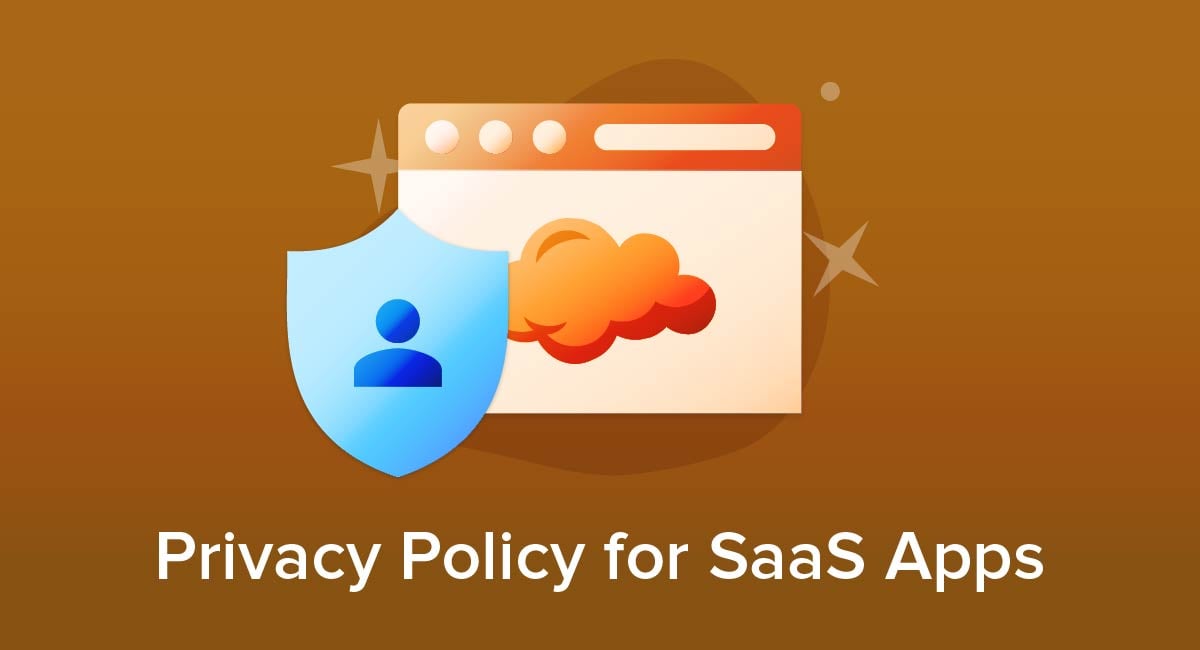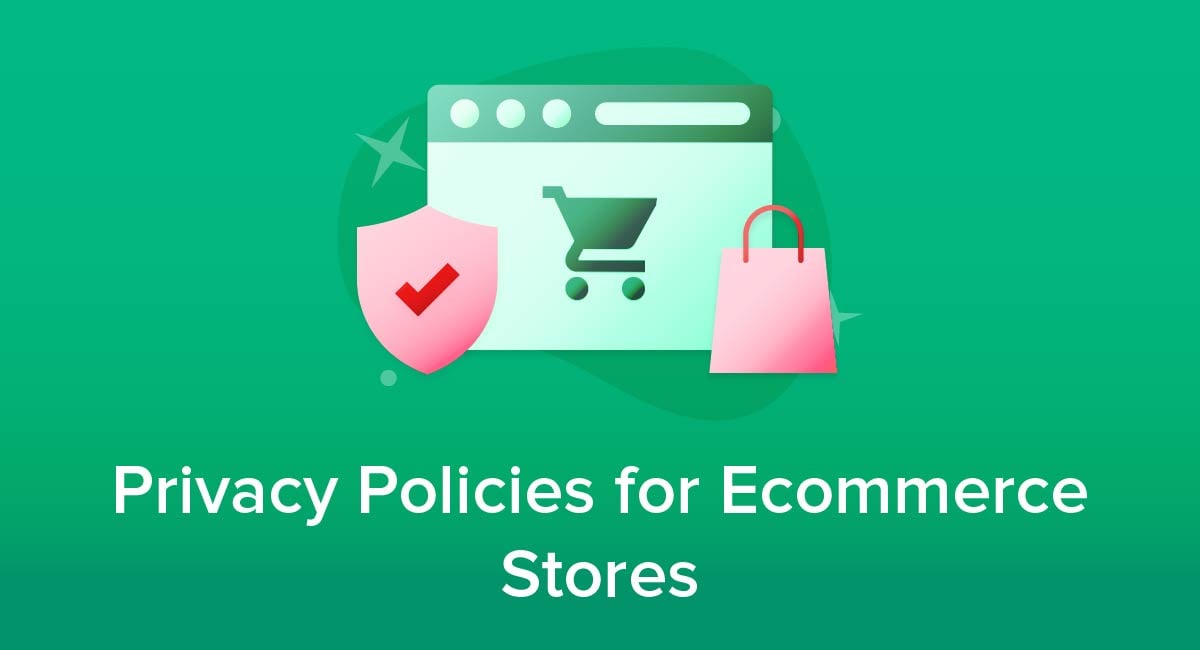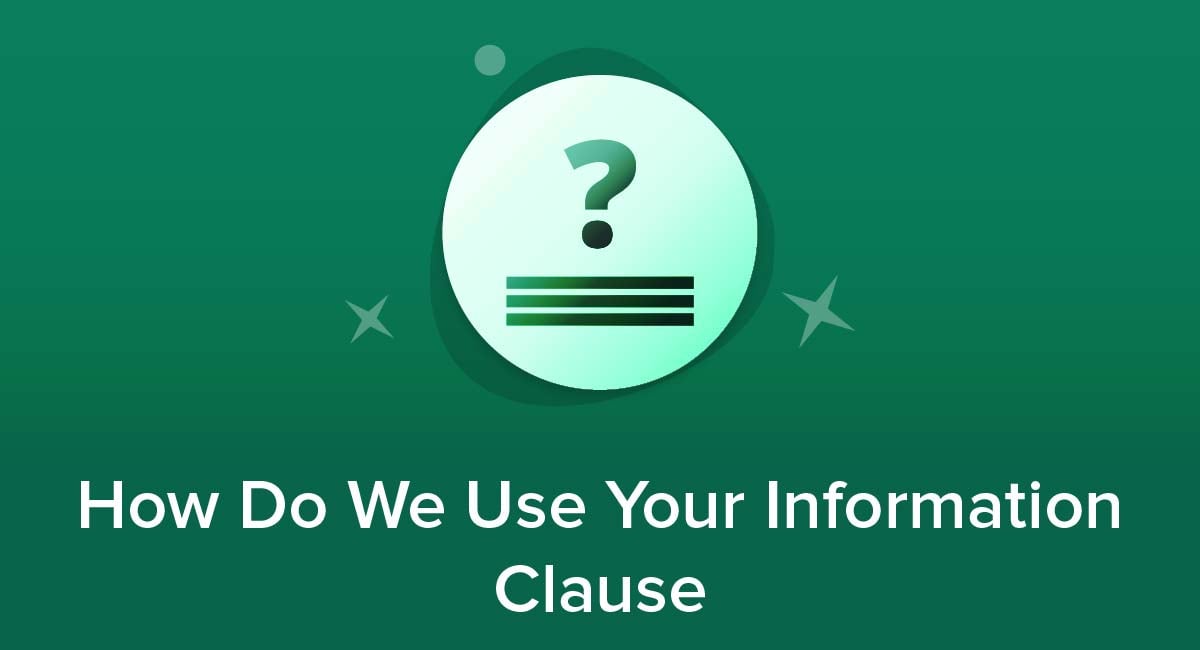
If your company uses the data of its users, you must notify them of this through a "How Do We Use Your Information" clause.
A How Do We Use Your Information clause is a statement by your company about how and what you use the information you collect from your users or customers. This can often be to conduct analytics of your web site, target marketing, and even help with scientific research.
Including this statement on your website is essential to protecting your website and notifying users of your practices as this clause is legally required.
This article will explain why this clause is important and show you how you can draft your own.
Our Free Privacy Policy Generator helps you create a custom Privacy Policy for your website and mobile app. Just follow these few simple steps and your Privacy Policy will be ready to display in minutes.
- Click on the "Free Privacy Policy Generator" button, located at the top of the website.
- Select where your Privacy Policy will be used:
- Answer a few questions about your business:
- Enter the country and click on the "Next Step" button:
- Continue with building your Privacy Policy while answering on questions from our wizard:
-
Almost done. Now enter your email address where you'd like your new Privacy Policy sent and click on the "Generate" button and you're done.

That's it. Now you can copy and paste your Privacy Policy code into your website, or link to your hosted Privacy Policy.




- 1. Why is This Clause Important?
- 2. How to Draft Your How Do We Use Your Information Clause
- 3. What Uses to Include in Your How Do We Use Your Information Clause
- 3.1. Provide, Personalize and Improve Products
- 3.2. Analytics and Research
- 3.3. Marketing or Advertising
- 3.4. Email Communications
- 3.5. To Create New Products or Services
- 3.6. Processing Payments
- 3.7. To Protect Website and Legal Obligations
- 4. Summary
Why is This Clause Important?
Having a Privacy Policy is required by privacy laws across the world. One of the main sections of a Privacy Policy is on how the information that is collected from users is used, thus making this section also a requirement to have.
This clause is a major point for both the EU's GDPR and California's CCPA/CPRA which make it a must that websites or apps include a notice that states how they collect, use, and share the information that is provided by consumers. This can be accomplished via a Privacy Policy.
One example of another law that requires this clause is Canada's PIPEDA. This law protects the private information of Canadian citizens in the private sector. One of the law's main 10 principles is "Identifying Purposes," or notifying consumers of the purpose of collecting information.
Also, being open and transparent about your company's collection and use practices is required by these same privacy laws.
It is equally important for the protection of your website or app against potential legal issues. If an individual raises an issue over whether they were properly notified of how their information was used or your company uses the information in the way that wasn't stated in your Privacy Policy, it could mean your website could be liable.
Including this clause will also help foster goodwill between your company and your customers. If customers are made aware of all of your processes, they may be more likely to return to your website.
A thing to note about privacy laws and the "use" clause is that not all laws will apply to all companies. Canada's PIPEDA only applies to private companies and not public entities or government ones. Make sure to pay attention to which laws may actually be applicable to you.
How to Draft Your How Do We Use Your Information Clause

First and foremost, your clause should be clearly and narrowly defined, and easy to read and understand.
As mentioned above, being open about your data collection practices is legally required. This means that including a section that is too broad and doesn't identify specific examples of how the information is utilized will make the clause difficult to understand.
The format of your clause is just as important as what you state in it. It's recommended that you avoid using long paragraphs as this can be too wordy and be confusing to readers. If you do decide to have paragraphs, make sure to keep them relatively small and include examples.
Facebook is an example of using longer paragraphs, but the uses are still broken up by bullet points:
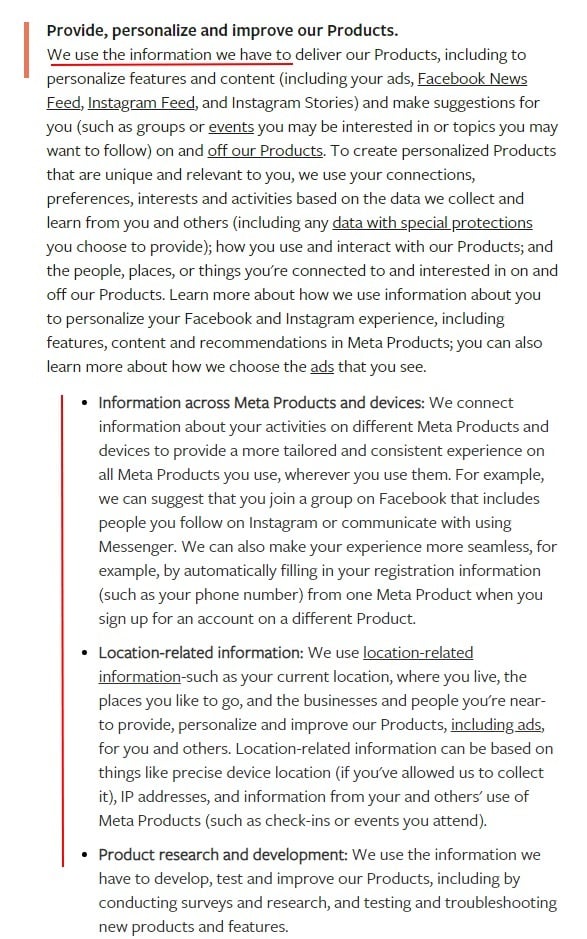
While graphics and paragraphs are one way to relay this information, one of the best ways is bullet points. This helps keep the information clear and easy to read. Making each bullet point a use can help to keep the clause clean too.
Take a look at how Nordstrom uses bullet points and small paragraphs help to state its processes:
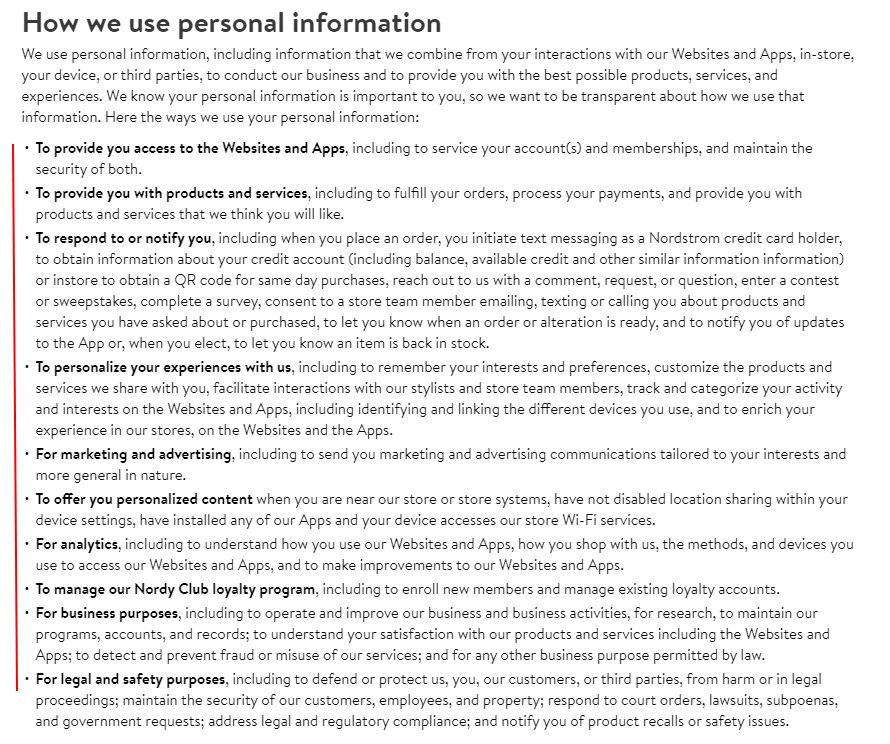
Now that you have an idea of basic formatting, let's take a look in more detail at the rest of the clause and what content it should contain to make it legally compliant as well as informative for your users.
What Uses to Include in Your How Do We Use Your Information Clause

Each company's Privacy Policy will be different from one another's. This is because not every website offers the same goods and services. When drafting your Privacy Policy, remember to tailor your clause to each of the particular purposes your company may use the data for.
For example, a social media site may include a section about using data to monitor harmful content that is posted to its website by users. It may not include a clause about using the information to process payments for services as an ecommerce or streaming website may.
Some common uses that may be found in a Privacy Policy may be:
- Personalizing and improvement of products
- Aiding analytics
- Planning ads
- Assisting with research
- Targeting email communications
- Creating new services for customers
- Maintaining and monitoring security online
- Processing payments
- Communicating on social media
- Complying with legal bodies and law enforcement
Remember this list is not exclusive and only some of these uses may apply to your website. Keep in mind the services and functions of your website to determine what to include.
Provide, Personalize and Improve Products
One of the most common uses that websites and apps include is to provide, personalize, and improve products. Tracking and using information can help websites personalize feeds and suggestions based off of an individual's previous searches.
Improvement of services can also help identify flaws and help the website function more efficiently.
Google includes in its clause that using the visitor's information can even help with spell-check features when visitors search for its products or services on the website:
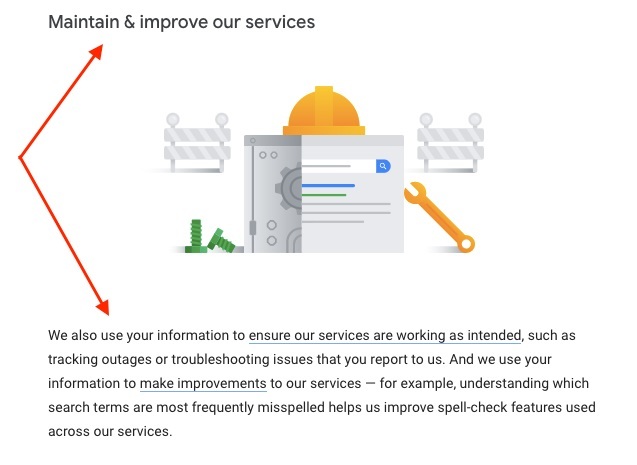
Personalization of products is one of the most important features for websites. Here's how Google discloses that it uses the data it collects to personalize the its services for customers:
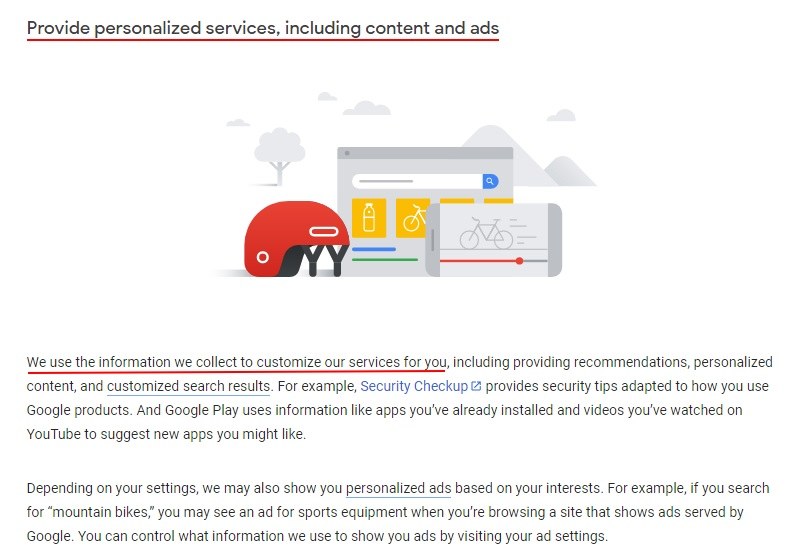
Analytics and Research
Another key use that almost every website includes is analytics. Today, websites or apps can't function without running some type of analytics to help their website function whether it be for customers or behind the scenes reasons. Oftentimes the data that is collected can help influence these analytics.
An instance of this is when the data can inform a company about whether customers use desktops or mobile devices more to visit their website. This can influence where functions and money may be spent.
Here's how Nordstrom states how analytics are used, and use data to operate:

Optimization is another way analytics can help a website. It helps make a better experience for visitors and can help a website to target its audience. If a website finds through analytics that many of its users are searching for a certain type of product, websites may update feeds with suggestions so users don't have to spend unnecessary time looking for information.
Here's how Hulu states in its Privacy Policy that it uses collected personal information for analytics and optimization:
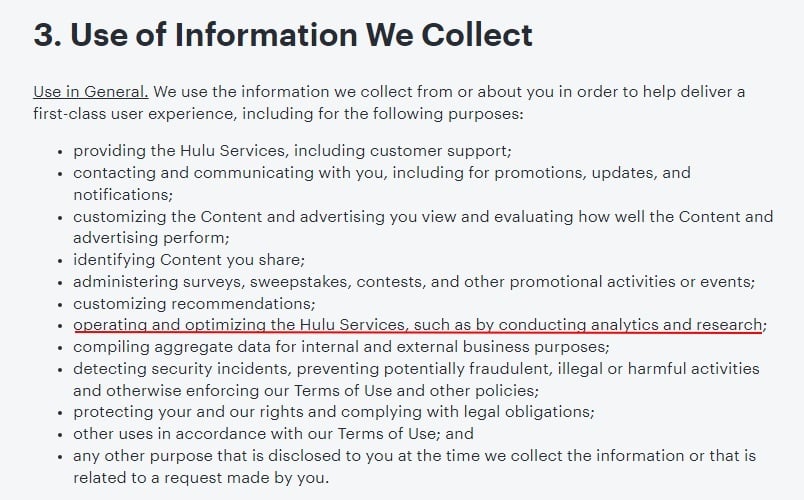
Marketing or Advertising
Marketing and advertising is essential for any website or app, no matter the services they offer.
Getting your name out there is just as key for a social media website as it is for a website hosting platform. It can help tailor what products or services they feature in ads and who they direct the marketing to.
Target takes the information it collects to help influence its "interest based" ads:
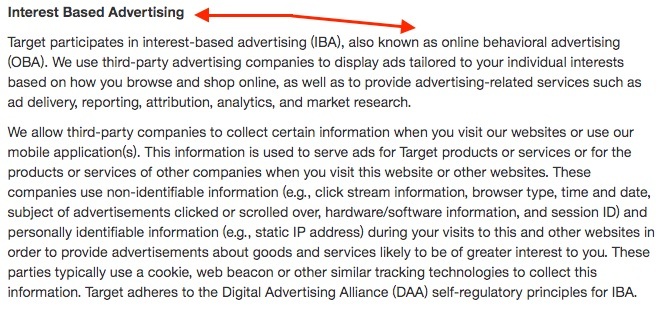
Email Communications
The most common form of communication between websites and apps with customers is email. If your company utilizes the data it collects to help tailor interactive and helpful emails, you should include a section detailing this in your Privacy Policy.
Here's how Sephora does this in its How We Use Your Personal Information clause:

To Create New Products or Services
This section can apply to either creating new services or new products. For websites that create their own products instead of selling other company's products, such as a wholesale ecommerce store, collected information can help create new items to help grow their company.
This may also apply to ecommerce stores that create their own clothing, products, and even website applications. New services can also be created due to consumers' information.
A good example of this is from Google regarding the development of a photo app:
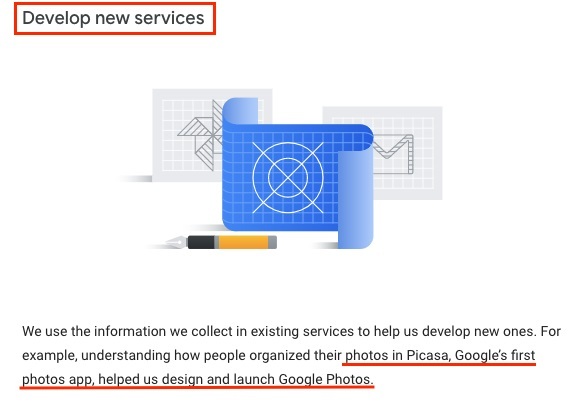
Processing Payments
Any websites that offer services or goods for a fee should have information about how consumer information is used to process payment. Payment information is one of the most sensitive information that is collected by websites and its protection and use is very important to users.
Make sure that you state clearly why and how payment information is used.
Hulu's "Use of Payment Information" section is one way of doing this:

To Protect Website and Legal Obligations
All websites and apps are subject to the laws that govern them. If you remember above, privacy laws require companies to include Privacy Policies. Other laws outside of privacy laws may also be applicable to you.
Companies from time to time may be required to disclose customer information to comply with legal disputes or required legal disclosures, such as to the IRS. Even though this is for legal reasons, it still needs to be disclosed.
StudioPress includes this information in its Privacy Policy to notify users of when it may have to share the information it collects for legal reasons:
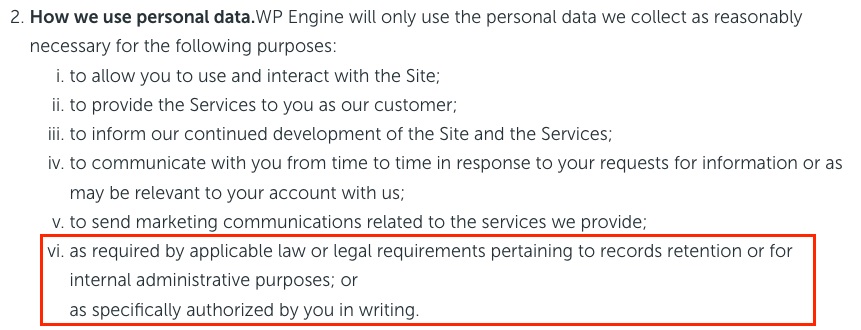
Summary
Websites and apps need all types of information to make their company function, whether that is to create new services or to process payment. Every use that you need the collected data for must be disclosed in your Privacy Policy.
When drafting your How Do We Use Your Information clause, keep in mind which privacy laws may apply to your website and what goods and services your company offers.
There is no one "use" clause that fits all.
Include the uses that your specific company will need the information for. This will help notify consumers and protect your company from potential issues down the road.
